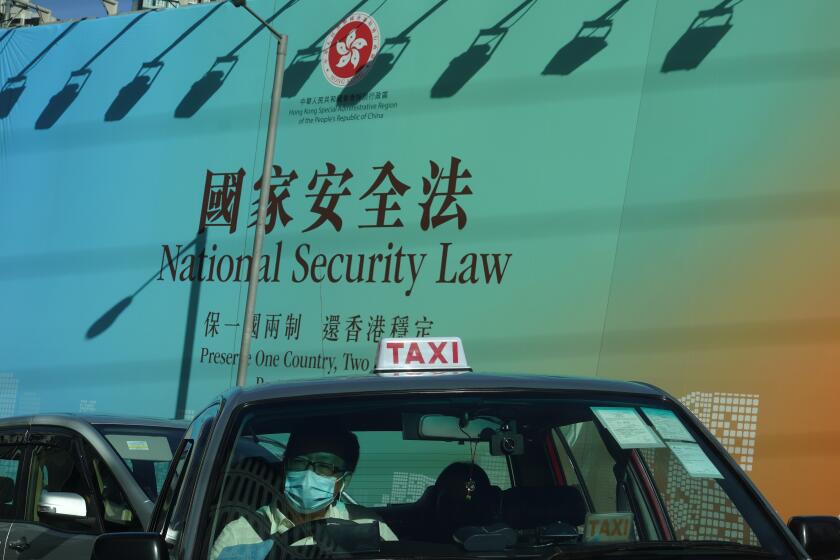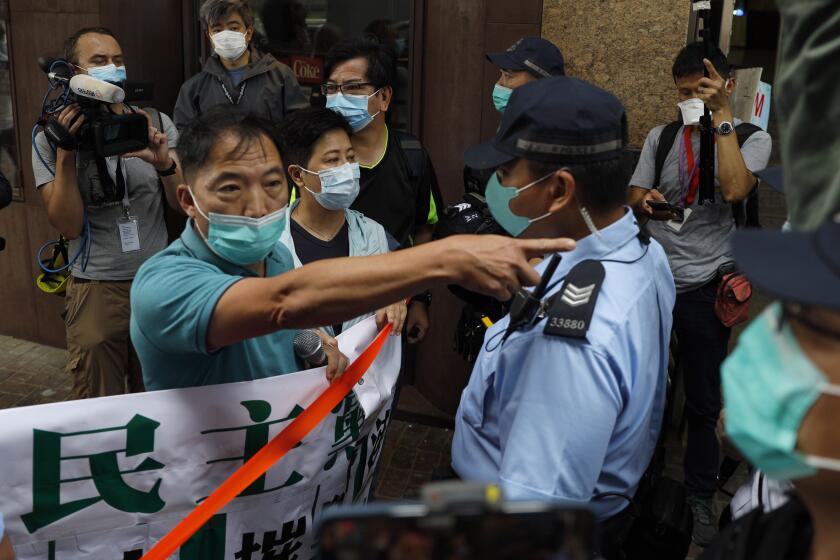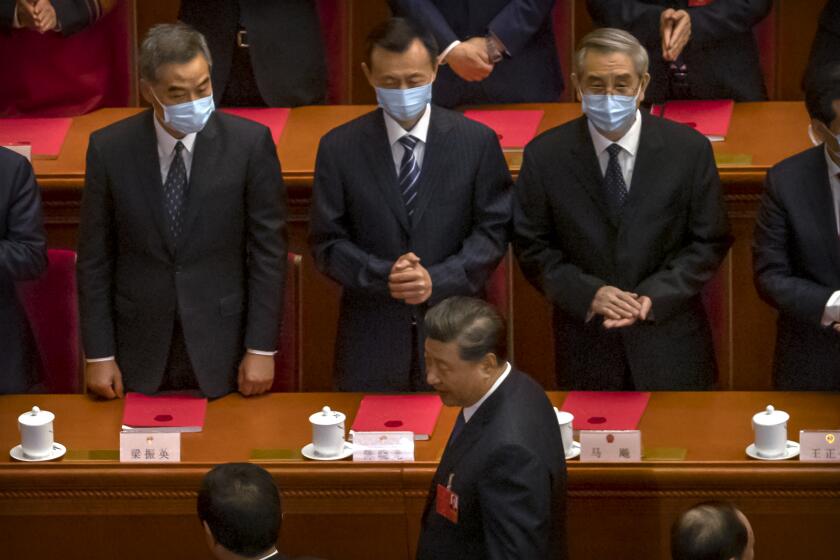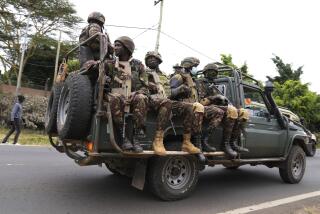Hundreds of Hong Kong protesters arrested on first day of new national security law
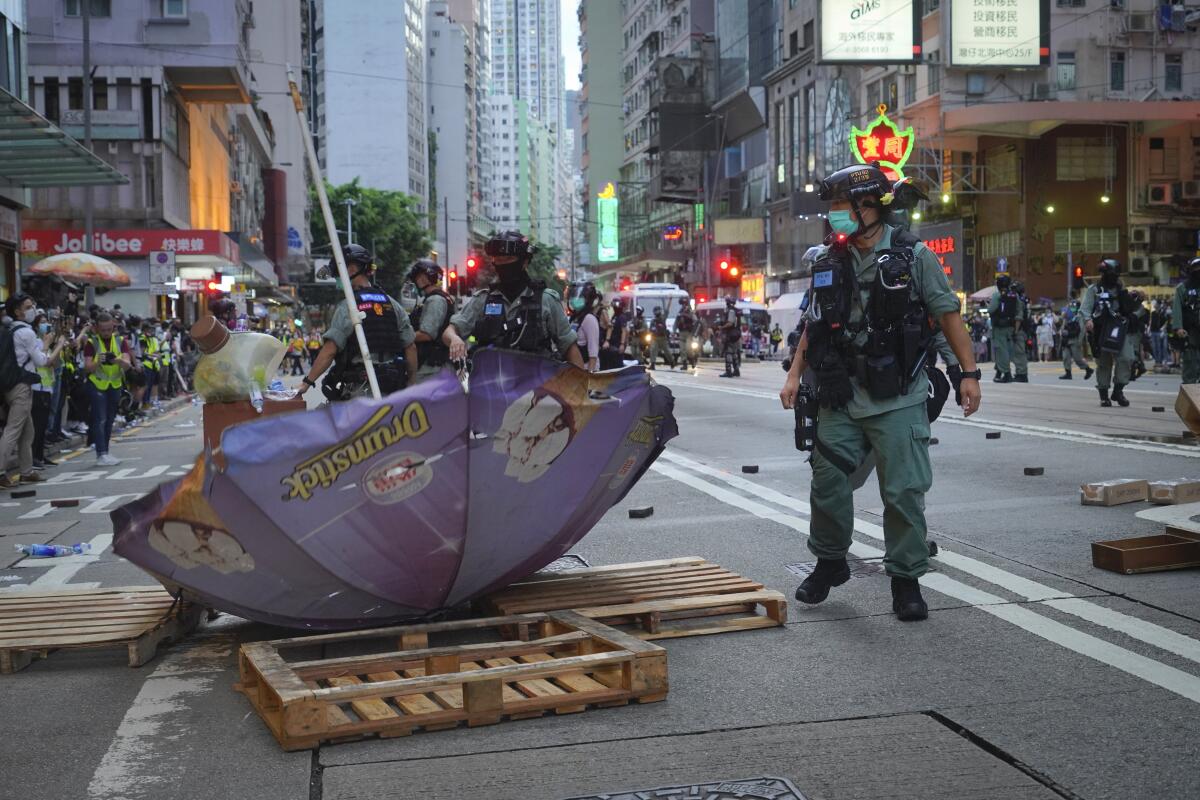
HONG KONG — A draconian new national security law failed to deter thousands in Hong Kong from attending illegal protests Wednesday, the 23rd anniversary of the former British colony’s return to Chinese rule.
Scattered demonstrations across Hong Kong Island, the city’s commercial and financial heart, were met with an overwhelming show of force from police who deployed water cannons, tear gas and pepper spray to disperse protesters and, in some cases, journalists. Seven officers were injured, including one who was stabbed in the arm and three who were hit by a motorcycle, police said.
About 370 people were arrested by late evening, including 10 accused of violating the new law, a sweeping piece of legislation that gives China‘s communist rulers near-carte blanche to silence critics in a city that has fiercely defended its autonomy from Beijing. Most of the arrests were for alleged offenses such as unlawful assembly and disorderly conduct, police said.
The national security law is ostensibly designed to target acts of secession, subversion, terrorism and collusion with foreign forces to endanger national security. But it clashes with local laws that guarantee residents freedoms of speech, assembly and press. A new security agency that answers to China will enforce the law in secrecy and have the power to transfer suspects to the mainland.
Among the first to be arrested Wednesday for violating the new law were three protesters found carrying leaflets and a banner promoting Hong Kong independence, police said.
Introduced in the waning hours of Tuesday, the law sent a collective shudder across the semi-autonomous city of over 7 million people. Provisions preventing the law from being applied retroactively did little to stop Hong Kongers from deleting social media accounts and posts that could potentially be deemed illegal.
China’s leaders were caught off guard by Hong Kong’s fierce protests. A year later, they’re armed with a law that ensures Beijing’s firm control.
“I feel any post could put me in a dangerous position, and I don’t know what the repercussions will be,” said a protester named Mike who declined to give his surname for fear of attracting the attention of authorities.
The 39-year-old, who runs an online media business, said he attended the protest because he didn’t want China and the Hong Kong government to think he would accept the national security law without a fight.
“They have the legal backing to arrest us and we could be sent back to China,” he said. “I came out today because I want the world to know Hong Kongers will never give up. But I have to admit I am scared.”
Another protester, who would only give his surname, Chan, said he refrained from chanting slogans on the off chance that police would single him out and charge him with violating the new law.
“It’s risky to shout slogans now,” he said, choosing instead to clap his hands after each chant. “If one day I will be arrested for clapping my hands, I have nothing to say.”
A sweeping security law signals Beijing’s determination to crush pro-democracy protests at the risk of deepening its rift with the U.S. It is a bold strategy from Chinese leader Xi Jinping.
Willy Lam, an expert in Chinese politics at the Chinese University of Hong Kong, said more protests would come, although they would likely diminish over time as moderate supporters of the movement gave in to fear of the potential consequences.
“On one hand, we’ll still find Hong Kong’s young people being defiant and protesting despite the threat of jail,” Lam said. “At the same time, we’ll also see more people resigned to the fact that there’s not much you can do except emigrate to Australia, Canada or someplace else.”
Lam said the national security law greatly overstates the threat Hong Kong poses to Chinese President Xi Jinping’s grip on power. But a sputtering economy further weakened by the coronavirus outbreak has fed Beijing’s nationalistic tendencies. Bringing Hong Kong to heel, escalating border tensions with India and provoking Taiwan helps draw attention away from the Chinese government’s tacit promise to deliver consistent economic growth and rising wealth in exchange for uncontested rule.
“The Chinese Communist Party, which has no ballot box, has only two pillars of legitimacy: economic performance and nationalism,” Lam said. “Whenever there’s a problem with the economy, they put an emphasis on nationalism.”
Beijing’s bottom line is sovereignty. Hong Kong is a ‘purely internal affair that allows no foreign interference,’ Chinese government spokesman says.
The law has drawn international condemnation, particularly from the United States, which has revoked some of Hong Kong’s trade privileges.
British Foreign Secretary Dominic Raab said Wednesday that his country would introduce new immigration rules to help Hong Kong citizens with so-called British Nationals Overseas passports settle in Britain.
The passports did not guarantee British citizenship when they were issued to Hong Kong residents in the 1980s. There are about 350,000 British Nationals Overseas passport holders.
“We want a positive relationship with China,” Raab told lawmakers in Parliament. “But we will not look the other way on Hong Kong, and we will not duck our historic responsibilities to its people.”
Times staff writer Pierson reported from Singapore and special correspondent Chong from Hong Kong.
More to Read
Sign up for Essential California
The most important California stories and recommendations in your inbox every morning.
You may occasionally receive promotional content from the Los Angeles Times.
